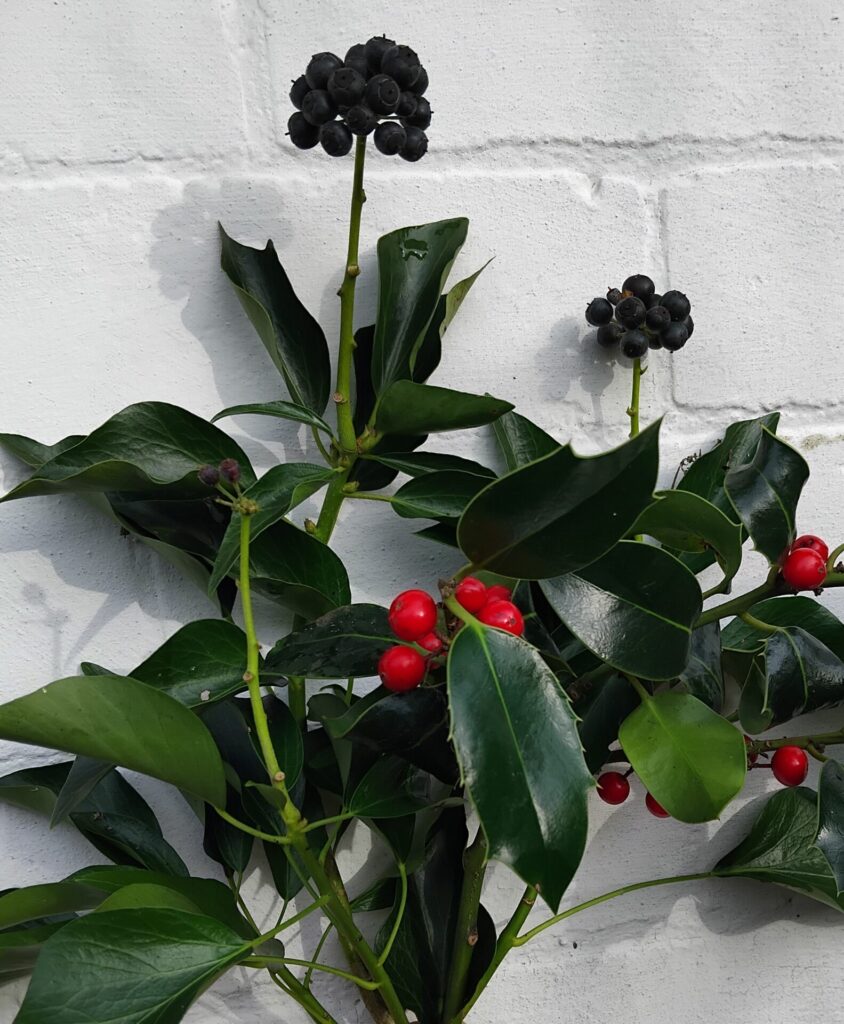
Hi, this is Jane from the Wild Bunch. In this festive season our thoughts usually turn to buying presents, decorating our homes, stocking up with foodie treats and celebrating with family and friends. But it can be a tough time for wildlife as the weather gets colder and food supplies are few. What can we do to help see them through the winter months ahead?
If you have a garden and space for a little tree or a climbing plant, then a good place to start is with holly and ivy. Both are great providers of tasty berries for birds and some mammals at this time of year – dormice and wood mice are known to eat holly berries. Ivy in particular provides shelter for birds and insects through the winter, whilst leaf litter under a holly bush is an ideal spot for hedgehogs to hibernate. Holly and ivy flowers are also a good source of pollen and nectar. For example the holly blue butterfly feeds on holly flowers in early summer. It then feeds on ivy flowers later in the year, along with insects ranging from the common wasp through to the rare golden hoverfly.
The winter flowering honeysuckle and mahonia are also good providers of late season pollen and nectar, plus some dwarf crab apples can keep their fruit well into early winter – a real treat for the birds. If space is limited, then there are still some great – and low-cost – plants to provide nectar and pollen for wildlife through the winter. A winter flowering clematis such as ‘Jingle Bells’ also has nectar and pollen in the dark months and takes up very little room – just needing some fence or trellis to scramble over. Snowdrops, cyclamen, heather and crocus are all small enough to grow in pots. All can easily be found in many nurseries, garden centres and sometimes supermarkets, often at very low prices. So even if funds are tight at this costly time of year, we can all do our bit to help wildlife through the winter.
If you would like to join the Wild Bunch, share ways to encourage wildlife in gardens and local open spaces, or suggest topics for the monthly gatherings, just email fromewildbunch@gmail.com. To receive the monthly newsletter, to find out dates, topics and location of gatherings and to book a place, visit www.bit.ly/frome-wild-bunch We look forward to seeing you in the New Year.

